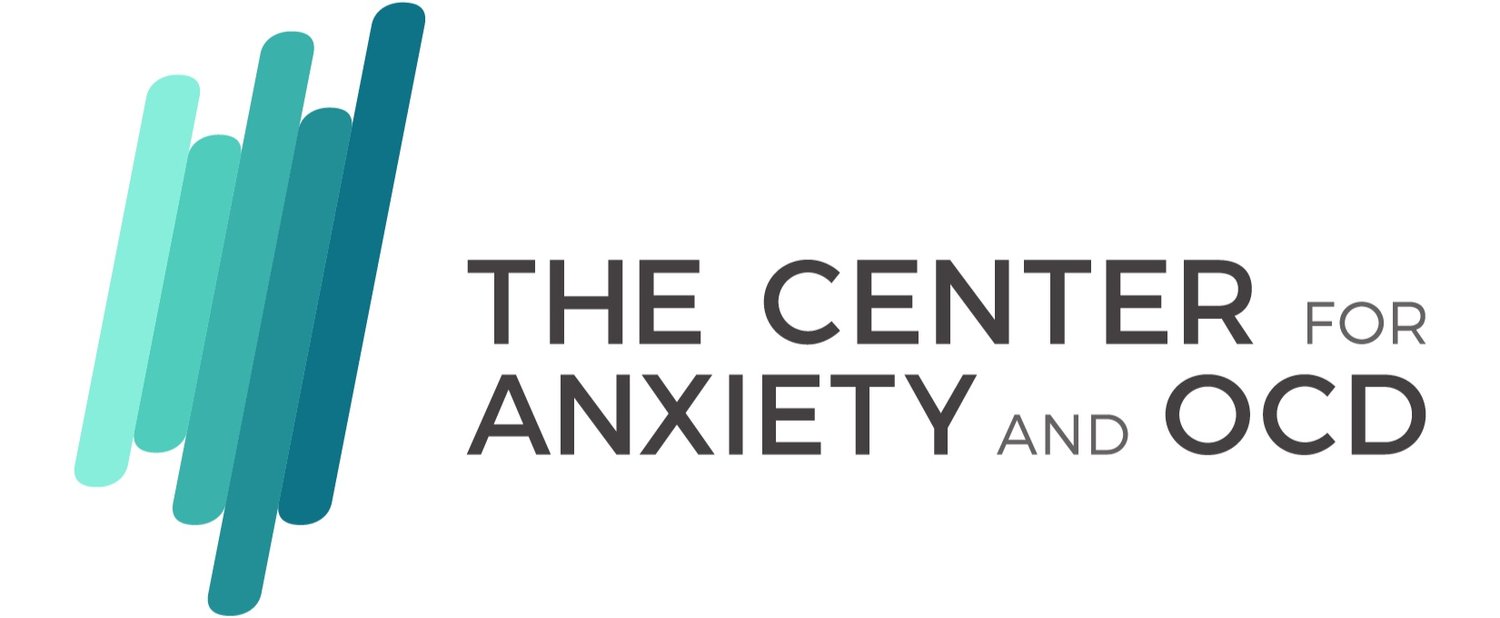
Obsessive-Compulsive Disorder
Obsessive-Compulsive Disorder:
Obsessive-compulsive disorder (OCD) is a debilitating psychiatric condition which affects approximately 1-3% of the population and is characterized by a persistent pattern of unwanted thoughts, images or impulses called obsessions, and neutralizing behaviors called compulsions. Obsessions cause the sufferer significant distress due to their frightening and often taboo nature, and can sound like a never ending list of “what if” fears and worst case scenarios. These obsessions cause significant distress, and in an attempt to alleviate that distress, a person with OCD engages in repetitive or ritualistic actions called compulsions which include rumination, avoidance behaviors, reassurance seeking behaviors and checking behaviors. Notably, sufferers experience the messages their OCD sends as ego dystonic, which means that they are fundamentally at odds with the individual’s core values and true desires. Because of the invisibility of this condition as well as the shame that can surround its various themes and presentations, OCD is often overlooked and frequently misdiagnosed, with the average time it takes a person to receive proper treatment between 14-17 years.
Common Themes in OCD
Contamination OCD
A preoccupation with the presence of germs or a feeling of dirtiness or contamination, often associated with the compulsion of hand washing, excessive use of sanitizer, and avoidance of 'contaminated' objects, people or places.
Harm OCD
A preoccupation with the possibility of causing harm to others or to oneself. Obsessions include a fear of stabbing, shooting, knowingly or unknowingly murdering or insulting and injuring others. Compulsions may include avoiding household items such as knives or scissors, confessing repeatedly to avoid feeling guilty, or compulsively researching how to identify signs of a harmful or dangerous person. Harm OCD can also include suicide obsessions, where the sufferer is plagued with a fear of getting to the point where they might take their own life.
Scrupulosity/Moral Scrupulosity
A preoccupation with one's relationship to God, morality or core goodness. Sufferers fear the possibility of being excluded from heaven or of experiencing eternal damnation and can engage in many ritualistic compulsions to try to 'wipe clean' their thoughts or sins. Moral scrupulosity includes a preoccupation with goodness and purity of thoughts and behaviors, as well as an extreme intolerance for behavior perceived of as 'bad' or immoral. Compulsions include excessive or ritualized prayer, over-apologizing, and reassurance seeking to ensure one has not behaved in a ‘bad’ or ‘sinful’ manner.
Relationship OCD
Persistent doubt about the 'rightness' of ones relationship, or the 'correct' amount of love or attraction one feels for their partner, or their partner feels for them. Obsessions tend to focus heavily on whether or not you have found ‘the one,’ and whether or not you are experiencing the ‘right’ feelings in your romantic relationship. Compulsions can include constant scrutiny of a partner's perceived flaws, checking to assess how attracted or in love one feels towards their partners multiple times a day, or incessant mental comparison to past relationships or to the ideal fantasy relationship. Relationship OCD is often exasperated by childhood attachment injuries with caregivers.
CAOCD now offers couples therapy for partnerships in which one or more member struggles with relationship OCD, please inquire for more information.
Sexual Orientation OCD
Previously known as homosexual OCD (HOCD), sexual orientation obsessions include worries about ones true identity or orientation, or fears of being in denial of one’s true identity. Obsessions revolve around fears of being any sexual orientation or gender identity other than the one a person typically associates with, for example worries of being gay when one identifies as straight or vice versa. SOOCD obsessions can also include concerns of truly being transgender and stuck in the wrong body. Common compulsions in SOOCD include checking against members of the same sex or opposite sex to 'test' attraction, checking oneself for signs of groinal response or arousal, and avoiding members of the same or opposite sex for fear of experiencing anxiety or triggering doubt about one’s true identity.
Minor Attraction OCD
Previously known as Pedophile OCD or "POCD," this theme revolves around the fear that one could be attracted to children or might secretly want to molest, sexually assault or otherwise harm minors. Common compulsions include avoiding children, checking one's arousal level when around children, and excessive googling around the topic in an effort to gain certainty. Due to its troubling and taboo content, those suffering with this OCD theme can experience an extreme amount of shame and guilt around their thoughts, and some find expressing the content of their intrusive thoughts very difficult, even to a mental health professional.
PostPartum OCD
A fear of hurting or wanting to hurt ones child, of not loving one’s child enough, or of accidentally or intentionally neglecting a child’s needs. This theme is frequently experienced by new parents during the first few months after birth but can extend into early childhood as well. Common compulsions include not wanting to stay alone with ones child, removing objects that could cause harm in the home, confession to one's partner or others to alleviate a sense of responsibility, refusing to be alone with a child, and excessive researching or googling of symptoms.
Existential OCD
A preoccupation with nature of life, the meaning of existence or ones reality. Compulsions associated with this philosophical manifestation of OCD can include checking whether or not one is in a dream or simulation, extensively researching the meaning of life or reality, and a seemingly endless search to find one’s own place and purpose. Feelings of dissociation or unreality often accompany this theme and can become obsessions in and of themselves. What might seem like a recreational and philosophical inquiry quickly proves itself to be more problematic when the sufferer feels a deep and compulsive urge to know the truth behind these existential questions.
Sensorimotor OCD
An obsession or fixation with naturally occurring bodily functions, such as breathing, swallowing, blinking or heart rate. Often the sensorimotor OCD sufferer becomes hyper focused on their autonomous bodily functions worrying that they will be trapped, for example, noticing their breathing or monitoring their blinking forever. Sensorimotor OCD can feel like a sense of body claustrophobia and is often accompanied by symptoms of panic, which can increase the fixation on and attempt to control these autonomous bodily functions.
Just Right OCD
Just Right OCD involves an overwhelming need for things to feel “just right” or complete. Individuals with this subtype experience a persistent sensation that something is off, uneven, or incorrect—even when there is no logical reason. Obsessions often revolve around symmetry, exactness, or an internal sense of rightness. Common compulsions include repeating actions until they feel perfect, meticulously arranging objects, or mentally reviewing situations until a fleeting sense of relief is achieved. The distress comes not necessarily from fear of harm, but from the deep discomfort of something feeling wrong.
Real Event OCD
Real Event OCD is marked by an intense preoccupation with a past action or event—something that did or may have actually occurred. Unlike purely hypothetical intrusive thoughts, this subtype focuses on real experiences, often minor or ambiguous, which are repeatedly analyzed for potential wrongdoing, moral failure, or shame. Individuals may compulsively ruminate, excessively confess, seek reassurance, or research similar situations to compare their own actions. The underlying fear is often, “What if this makes me a bad person?”, leading to cycles of self-doubt and emotional distress.
Hit and Run OCD
Hit and Run OCD is a subtype of Harm OCD in which individuals fear they may have accidentally hit a person, animal, or object while driving—despite no clear evidence. This distressing doubt leads to compulsions such as repeatedly checking the road, retracing their route, scanning news or social media for accident reports, or reviewing dashcam footage. The anxiety is fueled by an intense fear of unknowingly causing harm and being morally or legally responsible. These compulsions offer temporary reassurance, but the uncertainty quickly resurfaces, reinforcing the obsessive cycle.
Retroactive Jealousy OCD
Retroactive Jealousy OCD is characterized by obsessive, distressing thoughts about a partner’s past relationships or experiences. Individuals with this subtype feel consumed by intrusive doubts, comparisons, or fears that their partner’s past diminishes the value of their current relationship. Common compulsions include excessive questioning of the partner, ruminating over past events, seeking reassurance, checking social media for past relationships, or mentally comparing themselves to ex-partners. Despite knowing these thoughts are irrational, the uncertainty and emotional discomfort drive a relentless need for certainty and reassurance, creating strain in both the individual and the relationship.
Treatment for OCD
Thankfully, while the themes above may be terrifying, the prognosis for OCD is very positive. In fact, studies have shown that most people experience significant symptom reduction when they are treated using evidence-based approaches like the ones practiced at CAOCD, which includes a mixture of cognitive behavioral therapy (CBT), acceptance and commitment therapy (ACT), and exposure with response prevention (ERP). At CAOCD, we encourage our clients to challenge distorted thought patterns (CBT) while encouraging a less confrontational relationship to anxiety (ACT) before gently asking them to face their fears head on (ERP). When clients face their feared scenarios in small, manageable ways and utilize the right tools to correct unhelpful behaviors and resist compulsions, they often discover that the feared scenario their OCD paints is unlikely to occur. More importantly, clients come to realize that they can tolerate anxiety and discomfort, and don’t need to live a life filled with compulsive behaviors in order to cope. With the right help and with the support of a specialist, you can learn to manage your symptoms and live a full and meaningful life. You don’t have to be a slave to your anxiety.
